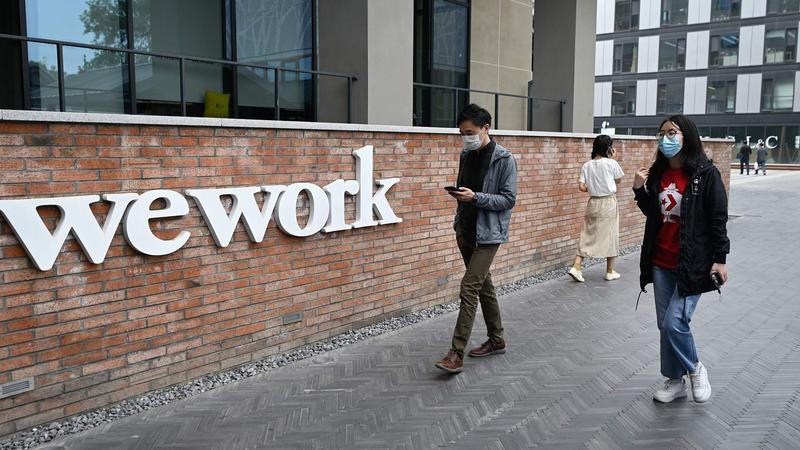Introduction
Shared office giant WeWork faces bankruptcy as its shares evaporate 99.3 per cent, but its Beijing office space remains overcrowded. The shared office industry as a whole is in the doldrums, and other brands, including Youkobo, are also facing difficulties. However, there is still room for growth in shared offices, with flexible office space expected to account for 30 per cent of the world’s total office space by 2030.
WeWork shares evaporate 99.3 per cent, but Beijing office space remains overcrowded
The office-sharing industry as a whole is in the doldrums, and other brands, including WeWork, are also facing difficulties
Flexible office space is expected to account for 30 per cent of total global office space by 2030
The once shared office giant WeWork has gone to the wall.
The situation of WeWork
The latest market news says that US shared office business WeWork plans to enter bankruptcy proceedings as early as next week under Chapter 11 in the US.
As a result of the news, WeWork plummeted more than 35 per cent in pre-market in the US on Wednesday, followed by a share price drop of more than 51 per cent, leaving a market capitalisation of just $58,847,300, which has evaporated 99.3 per cent compared to when it went public.
Two years ago, in October 2021, WeWork went public with a market capitalisation of about $9 billion. At its peak, the “unicorn” enterprise valuation had reached $47 billion.
Previously, WeWork issued a bankruptcy warning in its second-quarter results report, saying that the company faced continued losses and office space members continued to cancel leases, seriously doubting the company’s ability to sustain operations.
However, a field visit to WeWork’s Beijing office found that the office area was still overcrowded and did not seem to be affected by the news. The reporter learned that the two rooms in WeWork’s office space in Chaoyang Joy City have already been rented out, and only one room is left for rent in the nearby Ocean Express International Centre.
WeWork officially entered China in 2016, but in August this year, WeWork China released a letter to customers, which mentioned that in “2020 has been separated from WeWork Global, and WeWork China has the ability to operate and manage independently, rather than a branch or subsidiary of WeWork “.
WeWork’s on-site sales staff also said, “WeWork China is currently undergoing localisation adjustments, and the delisting of WeWork Global has little impact on us.”
**WeWork has been operating at a sustained loss for the past two years. **In the second quarter of this year, WeWork’s revenue was $844 million, although a small increase of 4% year-on-year, but the net loss still reached $397 million, an increase of 60% year-on-year. 2022, WeWork’s revenue is about $660 million, and the net loss reached $507 million.
Over the past three years, the market has witnessed the ups and downs of shared offices. in 2015, under the favourable environment of entrepreneurship and innovation, small and medium-sized enterprises (SMEs) mushroomed and demand for new modes of office surged, which brought huge market demand and prospects for the shared office industry.
However, during the epidemic, health concerns and mandatory requirements for telecommuting hit shared offices hard, causing demand to plummet.
Since 2019, after the initial boom and extreme market expansion, the shared office industry has gradually become rational, and the industry has entered a reshuffle period, not only WeWork, but also Yucca Workshop, which was once known as the “first share of the joint office” in China, is now in a state of turmoil.
In 2020, Yucca Workshop to SPAC way in the United States stock market, since then did not usher in rapid development, the share price from the high point of 9.25 U.S. dollars fell below 1 U.S. dollars, the latest share price of only 0.27 U.S. dollars / share, the market value of only about 1,758,100 U.S. dollars.
From its founding in 2015 until 2022, like WeWork, Younkers has been losing money, with a total net loss of more than $4 billion over the years.
In July of this year, due to violation of the property reporting system, Yukonworks (Beijing) Venture Capital Co. and its shareholding in Co-operation and Co-creation (Beijing) Office Services Co. Ltd. were listed by the Beijing No. 3 Intermediate People’s Court as executives in breach of contract (the “old scoundrels”), with an outstanding amount of just over 5.44 million yuan and liquidated damages.
In July this year, another shared office brand, Office Mate, was also exposed to an operational crisis. Its office in Beijing has been closed, and its business units in other cities are also in arrears of wages, commissions and property rent.
In addition to these two headline companies, other domestic shared office brands are also showing signs of fatigue, such as SOHO 3Q, Krypton Space, Nash Space, Dream Plus, and other companies that once shouted about going public are now silent, and the shared office industry as a whole has entered a trough in terms of operations and business development.
In terms of operation mode, these office-sharing companies are basically equivalent to the “second landlord” in real estate rentals, mainly relying on earning the difference in rent to operate and make profits. This single model is greatly affected by market and rent changes, while the industry is also fierce competition, difficult to maintain the formation of lasting profits, sustained losses have become the norm for such enterprises.
Has shared office become a sunset industry? The answer is no. Previously, the founder of Yucca Workshop Mao Daqing mentioned in an interview: “Shared office is not a profiteering industry, not to mention a rapid expansion of the industry, but a long industrial chain of social infrastructure discs, is to serve the vast number of enterprises in the enterprise service platform.”
Early traditional shared office space services converge, with serious homogenisation and low differentiation in terms of room design. The threshold for new entrants in the industry is low, with real estate companies, asset operators, etc., but the exit cost is relatively high, which in turn leads to fierce market competition and a chaotic pattern.
In addition, shared office enterprises still lack a mature growth system in terms of ecology, circle and incubation, and value-added service charges have not yet formed a fixed and effective profit model. How to improve the degree of differentiation, enhance brand awareness, and create more profit points has become an urgent problem for the development of the industry.
After realising these pain points, how to adapt to the changes of the times and meet the market demand is an important way for the successive development of the shared office industry.
As businesses recognise the advantages of co-working in balancing telecommuting with traditional office work, they are revamping their workplaces to incorporate flexible space strategies. As a result, some market analysts believe that the flexible workspace market has some room for growth.
As production and life return to business as usual, the needs of business users will be more focused on the tangible value of the product, and the coworking industry will move towards improving the shape of the corporate office and enhancing the digitisation of work sessions.
The market for shared workspaces is expected to nearly triple to $37.4 billion by 2028, up from $14.3 billion last year. Industry research predicts that by 2030, flexible office space will account for 30 per cent of the total global office space.
WeWork has already made attempts in the layout of the market, and after fully localising its operations in 2020, WeWork China has been actively laying out its plans for the Chinese market, opening new communities in Wuhan, Shanghai and Beijing this year.
Currently, WeWork China has nearly 100 communities in 12 cities/regions across the country, with an operating area of over 500,000 square metres. By increasing the scope of its layout and area of operation, it has tried to create a more diversified profitability system.
But ultimately these efforts have not resulted in operational and profit improvements, and WeWork, a company once synonymous with co-working, is still facing an existential threat due to its financial structure and member attrition.
The survival and development of WeWork is also a microcosm of the current shared office companies. In the current era of global economic slowdown, the only way for shared office companies to find a new way out of the uncertainty is to be practical, accumulate core resources, and rely on their core competitiveness to survive.








